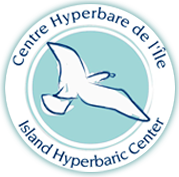Hyperbaric Oxygen is definitive in treating Neurological Abnormalities in the Blast Casualty
Textbook of Military Medicine -Hyperbaric Oxygen is definitive in treating Neurological Abnormalities in the Blast Casualty-
United States (US) Special Operations Forces (SOF) are among the most elite military forces in the world. Frequently, in this role its members are exposed to explosive blasts in training and combat. The effects of repeated blast exposure (RBE) on SOF brain health are incompletely understood, however one thing is certain the physical stress exerts an extraordinary pressure change to the bodies of these individuals.
The Walter Reed Institute produced a publication entitled the Textbook of Military Medicine. This comprehensive work is presented in a multi-volume format. Volume 5 is entitled Ballistics, Blast and Burn Injuries. This volumes draws on the experiences of past conflicts to enable the modern military physician to deal with injuries on the modern battlefield. On page 313, there is an algorithm entitled Neurological Abnormalities in the Blast. Casualty. In that Algorithm, Hyperbaric Oxygen therapy is listed as being a definitive treatment.
Hyperbaric Oxygen Therapy (HBOT) reported as an effective intervention for addressing repeated blast exposure in active-duty United States Special Operations Forces, primarily due to its potential benefits in treating Traumatic Brain Injury (TBI) and Post-Traumatic Stress Disorder (PTSD), conditions often associated with such exposures.
Here’s how HBOT could be beneficial:
1. Neurological Repair and Protection: HBOT enhances the oxygenation of brain tissue, which is crucial for the repair of cellular damage caused by traumatic injuries. The increased oxygen levels can help in reducing swelling, promoting the healing of brain tissues, and potentially restoring function to damaged neurons.
2. Reduction of Inflammation: Repeated blast exposure can lead to chronic inflammation in the brain, which is a contributing factor to the progression of TBI and PTSD. HBOT has anti-inflammatory properties that can help reduce this inflammation, thereby alleviating symptoms and potentially slowing the progression of brain injury.
3. Enhancement of Neuroplasticity: HBOT has been shown to promote neuroplasticity, the brain’s ability to reorganize itself by forming new neural connections. This is particularly important in the recovery from brain injuries, as it can help improve cognitive functions and adapt to new challenges or changes in the environment.
4. Alleviation of PTSD Symptoms: PTSD symptoms, such as anxiety, depression, and sleep disturbances, can be exacerbated by physical brain injuries. By improving brain health and function, HBOT can also contribute to the alleviation of these psychiatric symptoms, offering a more holistic approach to the treatment of service members exposed to blasts.
5. Improved Cognitive Function: Cognitive impairments are common in individuals with TBI and can be exacerbated by repeated exposures to blasts. HBOT can potentially improve cognitive function through enhanced oxygen delivery and reduced inflammation, helping affected service members regain better cognitive performance.
Given these potential benefits, HBOT presents a promising adjunct or alternative therapy for Special Operations Forces and the veterans of military dealing with the aftermath of repeated blast exposures.
